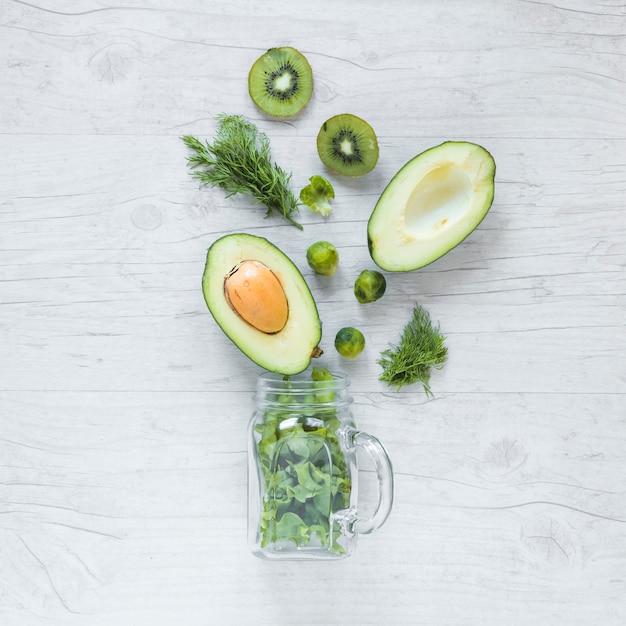
Did you try Veganuary this year? Are you thinking about going vegan or making plant-based eating a regular part of your lifestyle? Dr. Gemma Newman has some great tips to help you out.
There are so many diets out there—low fat, high fat, low carb, high carb, vegan, paleo, keto—it’s easy to get overwhelmed. But which one is truly the best? Veganuary is gaining ground every year. In 2018, 170,000 people signed up, an increase of 183% over 2017. Last year, over 250,000 joined the challenge, and it’s likely that number has risen again this year.
But is a vegan diet healthy, and how does it stack up against other diets we hear about? Nutrition can be confusing, with different advice from the media, food companies, and even health professionals. However, it’s clear that eating lots of fruits and vegetables, opting for whole, unprocessed foods, and cutting down on processed meats, sugary drinks, and refined flour is beneficial for our health.
When people are unsure about what’s healthy, they often stick to what they know and say ‘everything in moderation’. But we don’t tell smokers to smoke in moderation. It’s the same with sugary drinks and processed meats. The World Health Organization considers processed meats a class 1 carcinogen—a proven cause of cancer—so eating them in moderation isn’t good for you.
Dr. David Katz, co-founder of the American College of Lifestyle Medicine, gathered top nutrition scientists to agree on some health fundamentals. They concluded that a diet rich in vegetables, fruits, beans, nuts, seeds, whole grains, and water is key to good health. Whether you follow paleo or plant-based diets, both have more in common with each other than with the typical Western diet.
Heart disease remains our biggest killer, and the only diet proven to reverse coronary artery blockages within weeks is a whole food plant-based diet. This was demonstrated in the Lifestyle Heart Trial and replicated in the Mount Abu Heart Trial. No other diet has shown these results, making a mostly whole food plant-based diet a sensible choice for heart health.
Switching to a plant-based diet can seem daunting if you’re accustomed to a Western diet. If Veganuary participants can do it, so can you! If you’re thinking about starting a plant-based diet but don’t know where to begin, try these cookbooks:
– “So Vegan in 5” by Roxy Pope and Ben Pook has over 100 simple recipes with just five ingredients each.
– “BOSH!” by Henry Firth & Ian Theasby offers over 80 healthy vegan recipes and has become a popular plant-based resource online.
You can also find inspiration on Instagram by following vegan hashtags. Start by modifying your favorite meals. Swap chicken curry for chickpea curry, beef Bolognese for lentil Bolognese, or beef chili for three-bean chili. Enjoy the vegan versions of your favorite dishes and gradually explore new flavors.
Begin by changing your breakfast to a plant-based one two to three times per week, including your morning tea or coffee. Then, switch your lunch to plant-based a few times a week. As you get used to these changes, increase the number of plant-based meals you eat. You might see health benefits within two to three weeks, but expect some initial bloating as your gut adjusts.
Both the American Dietetic Association and the British Dietetic Association agree that well-planned plant-based diets can support healthy living at all ages and can help prevent diseases like heart disease and cancer. Plant-based diets are also linked to a lower risk of chronic respiratory disorders, allergies, and infections in children.
The British Dietetic Association’s Blue Dot Campaign stresses the importance of dieticians providing plant-based diet advice. Currently, we live in a nutrient-depleted world due to soil degradation and excessive pesticide use. The Western diet often lacks important nutrients like magnesium, folate, and fiber and is tied to obesity and chronic diseases. A whole food plant-based diet is nutrient-dense and can help fill these gaps.
While following a plant-based diet, you might need supplements:
– Vitamin B12: Essential since it’s not found in plant foods. Adults need 1.5mcg daily, but higher doses are recommended for effective absorption.
– Vitamin D: Needed if you don’t get enough sunlight. Supplements of 1000iu to 2000iu daily are suggested.
– EPA/DHA: These omega-3 fatty acids from algae support heart health.
– Flaxseeds: One to two tablespoons daily can lower blood pressure and boost heart health.
Dr. Gemma Newman, with 15 years of medical experience, is committed to promoting healthy living through plant-based nutrition. Making the switch might seem challenging, but with these tips and resources, you’re off to a great start.

